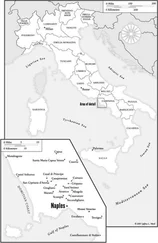Eric Ambler - Journey Into Fear
Здесь есть возможность читать онлайн «Eric Ambler - Journey Into Fear» весь текст электронной книги совершенно бесплатно (целиком полную версию без сокращений). В некоторых случаях можно слушать аудио, скачать через торрент в формате fb2 и присутствует краткое содержание. Год выпуска: 1940, ISBN: 1940, Издательство: Knopf, Жанр: Шпионский детектив, на английском языке. Описание произведения, (предисловие) а так же отзывы посетителей доступны на портале библиотеки ЛибКат.
- Название:Journey Into Fear
- Автор:
- Издательство:Knopf
- Жанр:
- Год:1940
- ISBN:9780307949967
- Рейтинг книги:5 / 5. Голосов: 1
-
Избранное:Добавить в избранное
- Отзывы:
-
Ваша оценка:
- 100
- 1
- 2
- 3
- 4
- 5
Journey Into Fear: краткое содержание, описание и аннотация
Предлагаем к чтению аннотацию, описание, краткое содержание или предисловие (зависит от того, что написал сам автор книги «Journey Into Fear»). Если вы не нашли необходимую информацию о книге — напишите в комментариях, мы постараемся отыскать её.
Journey Into Fear — читать онлайн бесплатно полную книгу (весь текст) целиком
Ниже представлен текст книги, разбитый по страницам. Система сохранения места последней прочитанной страницы, позволяет с удобством читать онлайн бесплатно книгу «Journey Into Fear», без необходимости каждый раз заново искать на чём Вы остановились. Поставьте закладку, и сможете в любой момент перейти на страницу, на которой закончили чтение.
Интервал:
Закладка:
“How long have you been dancing?”
“Since I was ten. That is twenty years ago. You see,” she remarked, complacently, “I do not lie to you about my age. I was born in Serbia, but I say that I am Hungarian because it sounds better. My mother and father were very poor.”
“But honest, no doubt.”
She looked faintly puzzled. “Oh no, my father was not at all honest. He was a dancer, and he stole some money from someone in the troupe. They put him in prison. Then the war came, and my mother took me to Paris. A very rich man took care of us for a time, and we had a very nice apartment.” She gave a nostalgic sigh: an impoverished grande dame lamenting past glories. “But he lost his money, and so my mother had to dance again. My mother died when we were in Madrid, and I was sent back to Paris, to a convent. It was terrible there. I do not know what happened to my father. I think perhaps he was killed in the war.”
“And what about José?”
“I met him in Berlin when I was dancing there. He did not like his partner. She was,” she added simply, “a terrible bitch.”
“Was this long ago?”
“Oh, yes. Three years. We have been to a great many places.” She examined him with affectionate concern. “But you are tired. You look tired. You have cut your face, too.”
“I tried to shave with one hand.”
“Have you got a very nice house in England?”
“My wife likes it.”
“Oh là-là! And do you like your wife?”
“Very much.”
“I do not think,” she said reflectively, “that I would like to go to England. So much rain and fog. I like Paris. There is nothing better to live in than an apartment in Paris. It is not expensive.”
“No?”
“For twelve hundred francs a month one can have a very nice apartment. In Rome it is not so cheap. I had an apartment in Rome that was very nice, but it cost fifteen hundred lire. My fiancé was very rich. He sold automobiles.”
“That was before you married José?”
“Of course. We were going to be married but there was some trouble about his divorce from his wife in America. He always said that he would fix it, but in the end it was impossible. I was very sorry. I had that apartment for a year.”
“And that was how you learned English?”
“Yes, but I had learned a little in that terrible convent.” She frowned. “But I tell you everything about myself. About you I know nothing except that you have a nice house and a wife, and that you are an engineer. You ask questions, but you tell me nothing. I still do not know why you are here. It is very bad of you.”
But he did not have to reply to this. Another passenger had entered the saloon, and was advancing towards them, clearly with the intention of making their acquaintance.
He was short, broad-shouldered and unkempt, with a heavy jowl and a fringe of scurfy grey hair round a bald pate. He had a smile, fixed like that of a ventriloquist’s doll: a standing apology for the iniquity of his existence.
The boat had begun to roll slightly; but from the way he clutched for support at the backs of chairs as he crossed the room, it might have been riding out a full gale.
“There is lot of movement, eh?” he said in English, and subsided into a chair. “Ah! That is better, eh?” He looked at Josette with obvious interest, but turned to Graham before he spoke again. “I hear English spoken so I am interested at once,” he said. “You are English, sir?”
“Yes. And you?”
“Turkish. I also go to London. Trade is very good. I go to sell tobacco. My name is Mr. Kuvetli, sir.”
“My name is Graham. This is Señora Gallindo.”
“So good,” said Mr. Kuvetli. Without getting up from his chair, he bowed from the waist. “I don’t speak English very well,” he added, unnecessarily.
“It is a very difficult language,” said Josette, coldly. She was obviously displeased by the intrusion,
“My wife,” continued Mr. Kuvetli, “does not speak English any. So I do not bring her with me. She has not been to England.”
“But you have?”
“Yes, sir. Three times, and to sell tobacco. I do not sell much before, but now I sell lot. It is war. United States ships do not come to England any more. English ships bring guns and aeroplanes from U.S. and have no room for tobacco, so England now buys lot of tobacco from Turkey. It is good business for my boss. Firm of Pazar and Co.”
“It must be.”
“He would come to England himself, but cannot speak English any. Or he cannot write. He is very ignorant. I reply to all favours from England and elsewhere abroad. But he knows lot about tobacco. We produce best.” He plunged his hand into his pocket and produced a leather cigarette case. “Please try cigarette made from tobacco by Pazar and Co.” He extended the case to Josette.
She shook her head. “Tesekkür ederim.”
The Turkish phrase irritated Graham. It seemed to belittle the man’s polite efforts to speak a language foreign to him.
“Ah!” said Mr. Kuvetli, “you speak my language. That is very good. You have been long in Turkey?”
“Dört ay.” She turned to Graham. “I would like one of your cigarettes, please.”
It was a deliberate insult but Mr. Kuvetli only smiled a little more. Graham took one of the cigarettes.
“Thank you very much. It’s very good of you. Will you have a drink, Mr. Kuvetli?”
“Ah, no, thank you. I must go to arrange my cabin before it is dinner.”
“Then later, perhaps.”
“Yes, please.” With a broadened smile and a bow to each of them he got to his feet and made his way to the door.
Graham lit his cigarette. “Was it absolutely necessary to be so rude? Why drive the man away?”
She frowned. “Turks! I do not like them. They are”-she ransacked the automobile salesman’s vocabulary for an epithet-“they are goddamned dagoes. See how thick his skin is! He does not get angry. He only smiles.”
“Yes, he behaved very well.”
“I do not understand it,” she burst out angrily. “In the last war you fought with France against the Turks. In the convent they told me much about it. They are heathen animals, these Turks. There were the Armenian atrocities and the Syrian atrocities and the Smyrna atrocities. Turks killed babies with their bayonets. But now it is all different. You like the Turks. They are your allies and you buy tobacco from them. It is the English hypocrisy. I am a Serb. I have a longer memory.”
“Does your memory go back to nineteen twelve? I was thinking of the Serbian atrocities in Turkish villages. Most armies commit what are called atrocities at some time or other. They usually call them reprisals.”
“Including the British army, perhaps?”
“You would have to ask an Indian or an Afrikander about that. But every country has its madmen. Some countries have more than others. And when you give such men a license to kill they are not always particular about the way they kill. But I am afraid that the rest of their fellow countrymen remain human beings. Personally, I like the Turks.”
She was clearly angry with him. He suspected that her rudeness to Mr. Kuvetli had been calculated to earn his approval and that she was annoyed because he had not responded in the way she had expected. “It is stuffy in here,” she said, “and there is a smell of cooking. I should like to walk outside again. You may come with me if you wish.”
Graham seized the opportunity. He said, as they walked towards the door: “I think that I should unpack my suitcase. I shall hope to see you at dinner.”
Her expression changed quickly. She became an international beauty humouring, with a tolerant smile, the extravagances of a love-sick boy. “As you wish José will be with me later. I shall introduce you to him. He will want to play cards.”
Читать дальшеИнтервал:
Закладка:
Похожие книги на «Journey Into Fear»
Представляем Вашему вниманию похожие книги на «Journey Into Fear» списком для выбора. Мы отобрали схожую по названию и смыслу литературу в надежде предоставить читателям больше вариантов отыскать новые, интересные, ещё непрочитанные произведения.
Обсуждение, отзывы о книге «Journey Into Fear» и просто собственные мнения читателей. Оставьте ваши комментарии, напишите, что Вы думаете о произведении, его смысле или главных героях. Укажите что конкретно понравилось, а что нет, и почему Вы так считаете.












